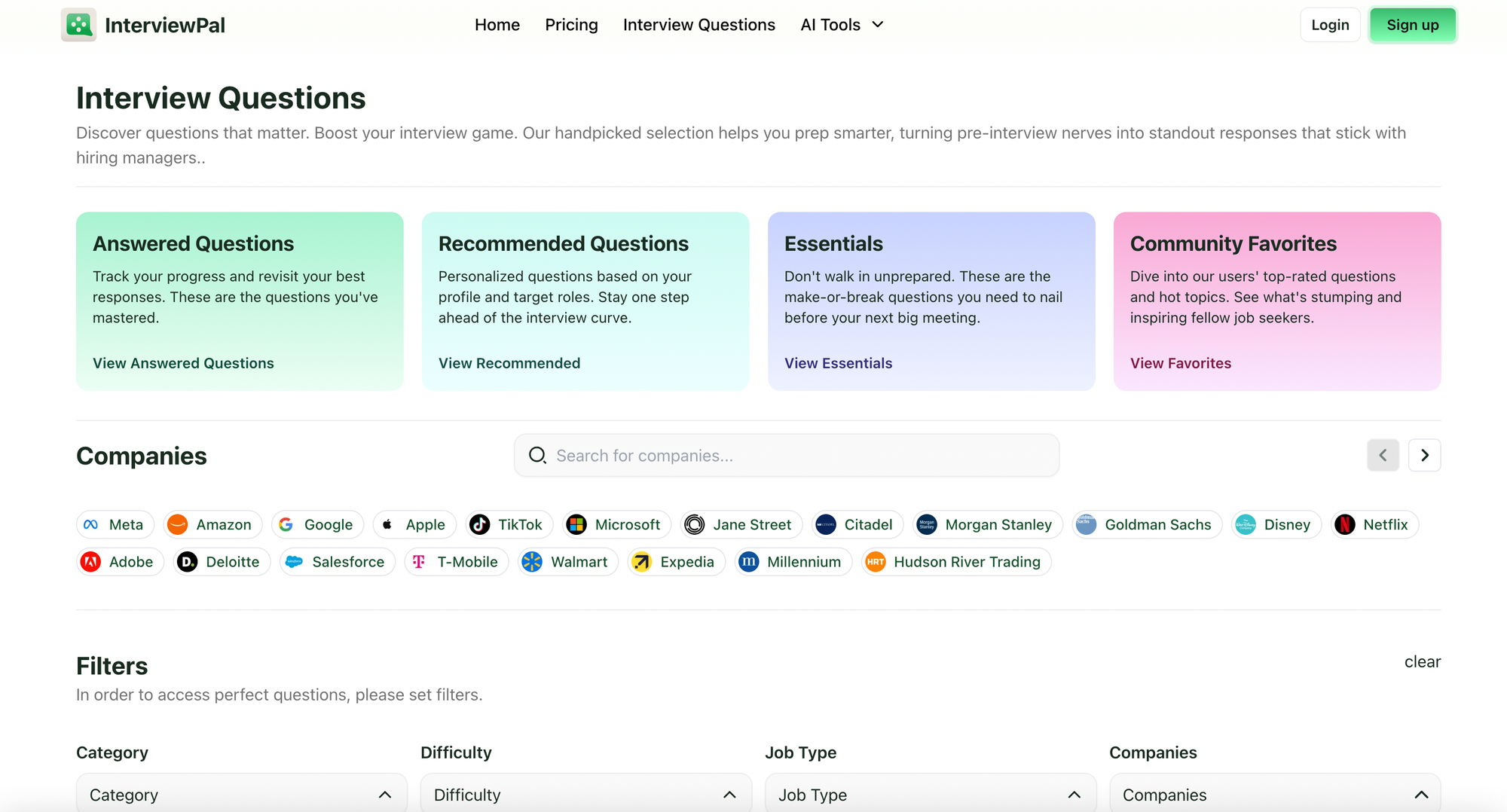Interview Questions Candidates Rarely Ask — But Should
Ask smarter questions in your next interview. Discover unique, thoughtful interview questions that help you stand out and learn what really matters to employers.

When people think about job interviews, they often obsess over how to answer tough questions. But what you ask the employer can be just as important. A thoughtful question signals curiosity, maturity, and genuine interest. It shifts the dynamic from passive to engaged. The best candidates don’t just want a job. They want the right job. Asking the right questions helps you figure that out - and shows the employer you’re not just hoping for an offer, you’re weighing a decision.
Forget the usual suspects like “What’s the company culture like?” or “Where do you see the company in five years?” They’re vague, and they rarely spark meaningful dialogue. Instead, aim for questions that make the interviewer pause, think, and see you as someone who brings insight and intention.
Here are questions I’ve seen great candidates ask, questions that help you stand out for the right reasons.
1. “What’s a challenge in this role that someone wouldn’t expect from the job description?”
Job descriptions often read like a highlight reel. They tell you what the company hopes for but not what might blindside you. This question surfaces the realities of the role, especially the parts that catch people off guard. Maybe there’s a difficult stakeholder. Maybe a tool is outdated. Maybe deadlines are tighter than they look on paper. You want to know.
How to tailor: In creative roles, you might ask about unspoken brand constraints. In technical roles, ask about legacy systems or cross-functional friction.
2. “How does the team react when someone pushes back or proposes a different approach?”
This reveals how open the team is to new ideas, how much autonomy you’ll have, and how disagreements are handled. Companies often say they value innovation, but you want to know how they handle it when it shows up uninvited.
What it shows about you: You’re someone who’s not just a task-doer. You care about collaboration, dynamics, and growth. You’re already thinking about how you’d contribute, not just how you’d fit in.
3. “When was the last time someone on your team made a mistake, and how did the team handle it?”
Everyone makes mistakes. What matters is how the company reacts. Do they shame and isolate, or do they support and debrief? This question gives you a look into the psychological safety of the team, something that doesn’t show up on Glassdoor.
Adaptation tip: In startups, you might phrase it around experimentation. In more regulated industries, you could ask about how the team balances risk with accountability.
4. “What are some traits or habits of people who tend to thrive here long term?”
This question reveals the unwritten rules of success. Is this a place where quiet focus wins, or one where visibility and relationship-building matter more? Understanding what “thriving” looks like tells you what the company truly values, beyond KPIs.
Use this to assess: Will you be encouraged to grow the way you want to? Will your style be rewarded, or will you be fighting the tide?
5. “How has the company changed in the past year, and what’s been hardest to adjust to?”
Change is constant, but how it’s handled says a lot. This question helps you understand the company's agility, communication, and transparency. It also shows whether leadership manages change proactively or reactively.
Why it stands out: You’re not just looking for stability, you're checking for resilience and maturity in a business. That’s the kind of thinking a future leader brings to an interview.

Try out our tailored Study Plans for free.
6. “What would make someone in this role say ‘this is the best job I’ve had’?”
This puts the spotlight on fulfillment, not just metrics. It nudges the interviewer to talk about what actually makes the work meaningful or satisfying.
What it reveals: If they struggle to answer or give generic perks, that tells you something. If they light up and give a thoughtful answer, you’ll get a window into what the company genuinely takes pride in.
7. “What kind of feedback mechanisms exist here? How often do people get actionable input?”
Feedback is how people improve, stay aligned, and feel seen. This question digs into the company’s communication hygiene. Do managers offer regular check-ins? Are performance reviews thoughtful or just a formality?
If feedback is rare or vague, you might feel like you’re operating in the dark. You want a workplace where growth isn’t just a buzzword but a habit.
Bonus: It also signals to the employer that you want feedback, which speaks well of your mindset.
8. “What’s something you’re working on improving in the team right now?”
Every team has its gaps. This question invites honesty about what’s not perfect, without putting the interviewer on the defensive. It also helps you understand what challenges you might be stepping into.
Tailoring tip: In leadership roles, consider rephrasing as “What would you want someone in this role to help improve?” That adds a note of initiative.
9. “How do promotions typically happen here, and what differentiates someone who gets promoted from someone who doesn’t?”
Career growth isn’t just about time served. It’s about visibility, timing, and how success is defined. This question helps you understand the internal mobility pathways and whether advancement is structured or ambiguous.
Warning signs: If the answer is vague or heavily tenure-based, you may be entering a flat structure with limited upward motion.
10. “If you could wave a magic wand and change one thing about the team or process, what would it be?”
Every company has pain points. This question opens up a candid space for the interviewer to share one without needing to feel like they’re complaining. It also shows that you’re thinking like a future teammate, not just a candidate.
How to use it: This can lead to rich follow-up questions or even a chance for you to share how you’ve solved similar issues before. It’s a backdoor into value alignment.
Small Adaptation Tips for Different Situations
- Entry-Level Roles: Keep tone curious, not challenging. Questions like “How will I be supported in the first three months?” or “What does success look like by month six?” are great too, but don’t hesitate to ask one or two from this list if the tone feels right.
- Mid-Career Professionals: Use these to show you’re thinking beyond the role—about how teams work, how businesses evolve, and how people grow.
- Senior or Leadership Roles: Flip the lens. Ask how you can contribute to solving known challenges, or how leaders are expected to model values during uncertain times.
You don’t need to ask all ten questions. Aim for two or three that feel right for the conversation. Sometimes, one sharp question is enough to change the temperature in the room and make the interviewer see you differently.
If you’re ever unsure what to ask, InterviewPal can help. Use Ask Away AI, and it lets you paste a job description and instantly generates smart, tailored questions you can ask in the interview, based on the team, responsibilities, and what’s not being said in the listing. It’s one of the most-loved features by our users who want to walk in confident and prepared, not robotic or rehearsed.
The questions you ask are your closing statement. They’re not about proving you’ve done your homework. They’re about showing how you think. The goal is not to impress. The goal is to connect. To understand. To evaluate. That’s what real interviewing is.
And when you ask a question that makes the interviewer think, “That’s a good one,” you're already halfway to the offer.






